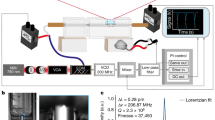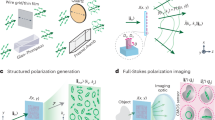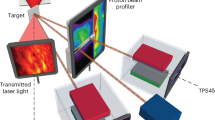Abstract
WELL defined, focused beams of high energy ions have many applications. A target can be micro-machined by eroding small areas by sputtering1 and the sputtered fragments can be collected for analysis2. In contrast to electron or laser beam machining, there need be no excessive heating of the specimen. If the focused beam is scanned over the surface of the specimen, variations in secondary electron emission can be exploited to simulate a picture similar to that of a scanning electron microscope3, with the difference that some erosion of the specimen occurs during observation.
This is a preview of subscription content, access via your institution
Access options
Subscribe to this journal
Receive 51 print issues and online access
$199.00 per year
only $3.90 per issue
Buy this article
- Purchase on Springer Link
- Instant access to full article PDF
Prices may be subject to local taxes which are calculated during checkout
Similar content being viewed by others
References
Kanaya, K., Optik, 21, 399 (1964).
Herzog, R. F. K., and Viehböck, F. P., Phys. Rev., 76, 855 (1949).
Gabbay, M., CR Acad. Sci., 261, 3325 (1965).
Drummond, I. W., and Long, J. V. P., Nature, 215, 950 (1967).
Author information
Authors and Affiliations
Rights and permissions
About this article
Cite this article
HILL, A. Uses of Fine Focused Ion Beams with High Current Density. Nature 218, 202–203 (1968). https://doi.org/10.1038/218202a0
Received:
Issue Date:
DOI: https://doi.org/10.1038/218202a0
This article is cited by
Comments
By submitting a comment you agree to abide by our Terms and Community Guidelines. If you find something abusive or that does not comply with our terms or guidelines please flag it as inappropriate.



